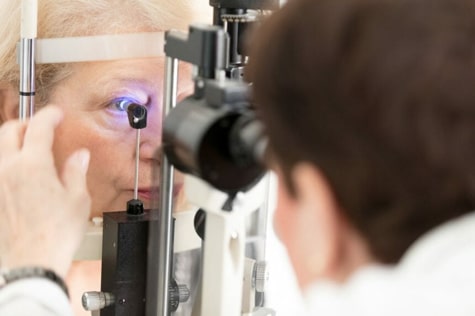
January 24, 2022
What Do You Need to Know About Glaucoma?
According to the , more than 3 million people in the United States currently have glaucoma. Experts estimate that half of those individuals do not know they have glaucoma yet. January is National Glaucoma Awareness Month, so at Wolfe Eye Clinic, we find this to be an important time to spread the word about this sight-stealing disease.
Everyone can be at risk for glaucoma from babies to older generations; however, it commonly impacts people the age of 60 years or older. Glaucoma is not curable and can cause blindness if left untreated. Even with proper treatment of glaucoma, people can still experience vision loss. At Wolfe Eye Clinic, we see glaucoma patients in many stages of the condition, so every visit is important!
What is Glaucoma?
Glaucoma is a group of eye conditions that damage the optic nerve. This is the area of the eye that is connected to the brain and transmits visual signals through our central vision. The damage occurs when there is a build up of fluid at the front of the eye causing a rise in eye pressure, tunnel vision, eye pain, and even redness. Not all individuals experience the same symptoms and the best way to protect yourself from glaucoma is through a comprehensive eye exam.
Different Forms of Glaucoma
There are many types of glaucoma but the two main forms include: primary open- angle glaucoma (POAG) and angle- closure glaucoma. These two forms are caused by an increase of pressure inside the eye and account for 90% of all glaucoma cases.
Primary open- angle glaucoma (POAG) most commonly effects peripheral vision and can often go unnoticed until significant vision loss has occurred. It is the most common type of glaucoma and can eventually impact the central vision. Primary open- angle glaucoma is when the eye does not properly drain fluid. This causes a slow clogging of the drainage canals and results in a pressure build up damaging the optic nerve.
Angle- closure glaucoma is the second most common form of glaucoma and can also be known as narrow- angle glaucoma. It occurs rapidly when the drainage canals become too narrow and cause a variety of symptoms including sudden vision loss, tunnel vision, eye or brow aches, and eye redness.
Other forms of glaucoma:
- Normal- Tension Glaucoma
- Secondary Glaucoma
The Importance of Eye Exams
Due to many forms of glaucoma having little to no symptoms, it can be difficult for individuals to detect if they have signs of glaucoma or not. It is vital to schedule eye exams regularly so that your local eye doctor can do tests for glaucoma and refer you to a Wolfe Eye Clinic glaucoma specialist if needed. If vision loss is associated with glaucoma, it cannot be reversed. However, if treatment is needed our glaucoma doctors will work with your eye doctor to provide options to slow the disease’s progression.

Glaucoma Risk Factors
Those at higher risk for glaucoma include individuals who have a family history of the disease, diabetes, high blood pressure, are over the age of 40, have a large amount of nearsightedness causing thin corneas or take steroids for other health concerns. Other individuals at a higher- than- average risk are those from African, Asian, or Hispanic descent. It is important to visit your local eye doctor twice per year if you are at a higher-than-normal risk of getting glaucoma.
Glaucoma Prevention & Treatment Options
Annual dilated eye examinations are key to staying ahead of the progression of glaucoma. It is helpful to know your family history and to watch for symptoms in between each visit. Some forms of glaucoma can be managed with medicated eye drops, but for more severe cases a laser trabeculoplasty may be needed to open they drain in the eye. In this case your local eye doctor may refer you to a Wolfe Eye Clinic specialized glaucoma doctor for further evaluation.
Our glaucoma doctors are located throughout the state of Iowa and are skilled ophthalmologists with expertise in treating all forms of glaucoma. For further questions about glaucoma or to schedule an appointment call us at (833) 474-5850.